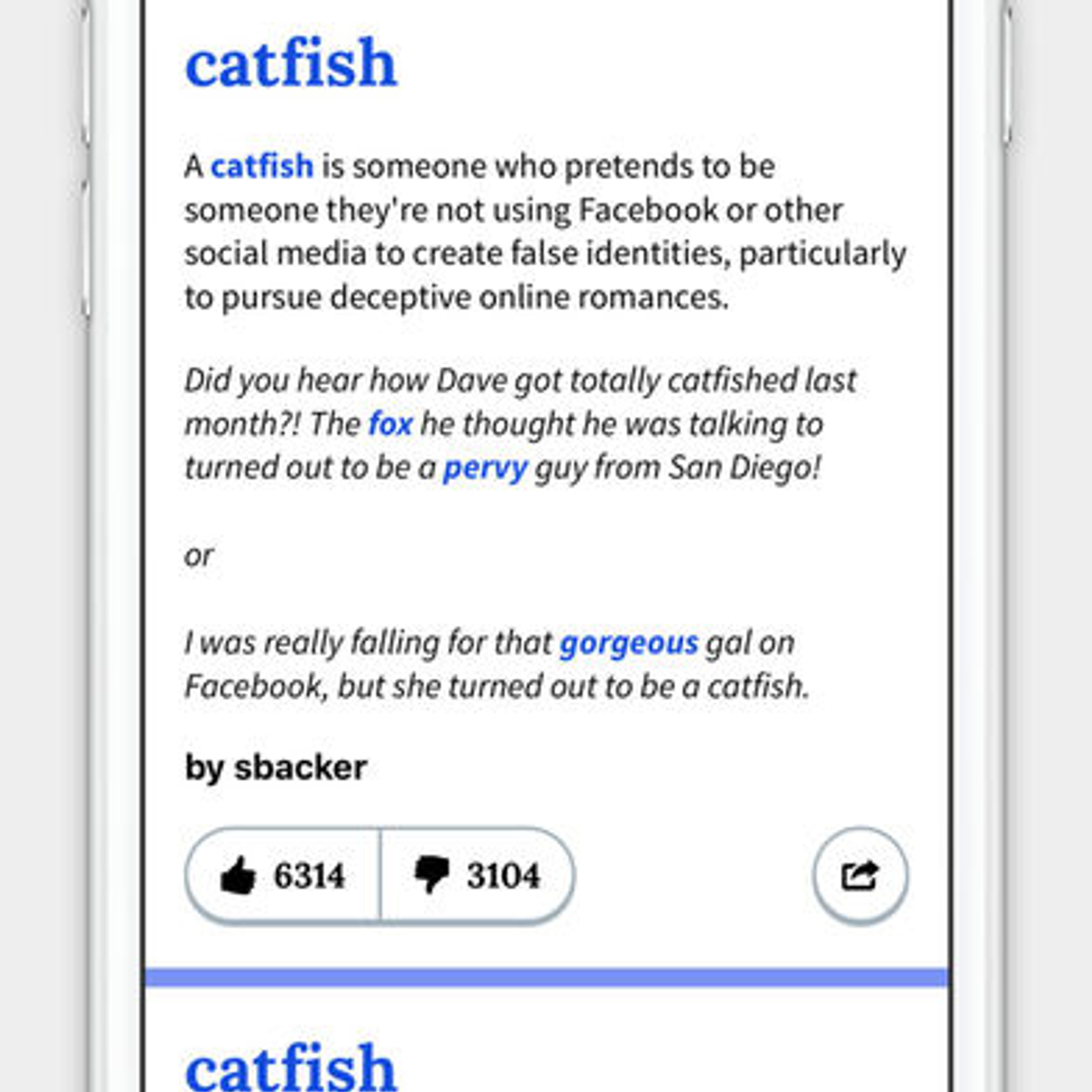Urban Dictionary NTR: The Comprehensive Guide To Understanding Its Meaning And Usage
Urban Dictionary NTR has become a widely discussed topic in online communities, sparking curiosity and debate among users worldwide. The term "NTR," short for "Netorare," originates from Japanese culture and has gained significant attention in recent years. In this article, we will delve into the meaning, origins, and cultural implications of NTR as defined in Urban Dictionary, while providing valuable insights for those seeking clarity on this controversial subject.
As the internet continues to expand and diversify, terms like NTR have found their way into mainstream discussions. It is essential to approach such topics with an open mind and a willingness to understand their cultural significance. This article aims to provide a balanced perspective on the subject, ensuring readers gain a comprehensive understanding.
By exploring the roots of NTR, its definitions across different platforms, and its implications in modern society, we aim to equip you with the knowledge needed to navigate this complex topic. Let's begin by breaking down the basics of NTR and its relevance in today's world.
- Couple Left Baby On Boat
- Capricorn Man Obsessed With Scorpio Woman
- Bob Moore Red Mill
- The Monsters Eric And Lyle
- Why Didnt Gypsy Just Run Away
Table of Contents
- What is NTR?
- NTR in Urban Dictionary
- Cultural Origins of NTR
- NTR in Popular Media
- Controversies Surrounding NTR
- Psychological Impact of NTR
- NTR and Gender Dynamics
- NTR in Modern Society
- Frequently Asked Questions
- Conclusion
What is NTR?
At its core, NTR refers to a genre of adult content originating from Japanese media. It focuses on themes involving betrayal, often depicting situations where a partner is involved with someone other than their significant other. The term has evolved over time, with varying interpretations across cultures and communities.
Defining NTR
NTR stands for "Netorare," which translates to "being cuckolded" or "having one's partner taken." While the term is most commonly associated with adult content, its broader implications extend to themes of trust, relationships, and societal norms.
Key Characteristics of NTR
- Focus on themes of betrayal and infidelity.
- Often involves complex emotional dynamics between characters.
- Explores power dynamics and jealousy in relationships.
NTR in Urban Dictionary
Urban Dictionary defines NTR as a term related to adult content, emphasizing its association with themes of infidelity and betrayal. While the platform provides a casual and user-generated perspective, it is essential to recognize the broader cultural context surrounding NTR.
- Iain Armitage Net Worth
- How Many Seasons Are In How I Met Your Mother
- Married At First Sight Philadelphia
- Is Stranger Things Over
- How Trump Wanted To Nuke Storm Eye
Urban Dictionary's Role in Shaping Perception
As a crowdsourced platform, Urban Dictionary reflects the collective understanding of its users. This can lead to both accurate and subjective interpretations of terms like NTR. By examining the definitions provided, we gain insight into how the term is perceived by a global audience.
Cultural Origins of NTR
The origins of NTR can be traced back to Japanese media, particularly in anime and manga. These mediums often explore complex relationships and emotional dynamics, laying the groundwork for NTR's emergence as a distinct genre.
Historical Context
Japanese culture has a long history of storytelling that delves into themes of love, betrayal, and power dynamics. NTR builds upon these traditions, offering a modern interpretation of age-old narratives.
NTR in Popular Media
NTR has made its way into various forms of media, including anime, manga, and video games. Its presence in these platforms highlights its appeal to audiences seeking emotionally charged narratives.
Notable Examples
- Popular anime series that explore NTR themes.
- Manga titles that delve into complex relationship dynamics.
- Video games that incorporate NTR elements into their storytelling.
Controversies Surrounding NTR
Despite its popularity, NTR remains a controversial topic due to its association with themes of infidelity and betrayal. Critics argue that it perpetuates harmful stereotypes and undermines healthy relationship dynamics.
Addressing Criticisms
It is crucial to approach NTR with a critical eye, recognizing both its artistic value and potential drawbacks. By engaging in open discussions, we can foster a better understanding of its implications.
Psychological Impact of NTR
The psychological effects of NTR vary depending on individual perspectives and cultural backgrounds. For some, it serves as a form of escapism, while others may find it unsettling or triggering.
Exploring Emotional Reactions
- How NTR affects viewers' perceptions of relationships.
- The role of empathy and understanding in processing NTR content.
- Strategies for maintaining healthy boundaries when consuming such media.
NTR and Gender Dynamics
NTR often explores gender roles and power dynamics within relationships. Understanding these elements is essential for analyzing its cultural significance.
Gender Representation in NTR
By examining how different genders are portrayed in NTR narratives, we gain insight into societal norms and expectations surrounding relationships.
NTR in Modern Society
In today's interconnected world, NTR continues to evolve, adapting to changing cultural landscapes. Its presence in digital media reflects broader trends in storytelling and audience engagement.
Adapting to New Platforms
As platforms like Urban Dictionary and social media shape modern discourse, NTR's role in shaping cultural narratives becomes increasingly significant.
Frequently Asked Questions
What Does NTR Stand For?
NTR stands for "Netorare," a term originating from Japanese media that focuses on themes of infidelity and betrayal.
Why is NTR Controversial?
NTR is controversial due to its association with themes of infidelity, which some argue perpetuate harmful stereotypes and undermine healthy relationships.
How Can I Approach NTR Content Responsibly?
Engaging with NTR content responsibly involves setting boundaries, maintaining critical awareness, and fostering open discussions about its implications.
Conclusion
In conclusion, Urban Dictionary NTR represents a complex and multifaceted topic that warrants careful consideration. By understanding its cultural origins, exploring its implications, and engaging in thoughtful discussions, we can gain a deeper appreciation for its role in modern society.
We encourage readers to share their thoughts and insights in the comments section below. Additionally, feel free to explore other articles on our site for further reading on related topics. Together, let's continue the conversation and deepen our understanding of the world around us.
Article Recommendations
- Who Did Lady Gaga Date
- Nicki Minaj Cardi B
- Good Lightweight Vacuum Cleaners
- Titanic Ocean Heart Necklace
- Hold On I Still Want You



Detail Author:
- Name : Dr. Dulce Kris
- Username : liam.moore
- Email : rose76@fay.org
- Birthdate : 1979-04-11
- Address : 6970 Tito Trail West Eldastad, MN 08730
- Phone : (951) 870-0160
- Company : Conn Group
- Job : Forester
- Bio : Dolor nam dolorem omnis iste. Error et a culpa quo minima tempora. Aut nemo aut quia quibusdam vero provident. Ea dolores commodi quidem earum aut.
Socials
twitter:
- url : https://twitter.com/odie.ankunding
- username : odie.ankunding
- bio : Quis ea quod tempora voluptatem accusantium rerum libero consequatur. Hic sit esse recusandae consectetur quia voluptatibus. Magni nostrum sint nihil id rerum.
- followers : 6170
- following : 1175
tiktok:
- url : https://tiktok.com/@odie6565
- username : odie6565
- bio : Omnis tempore repellendus sed magni animi. Doloribus sit labore impedit iure.
- followers : 6914
- following : 1662